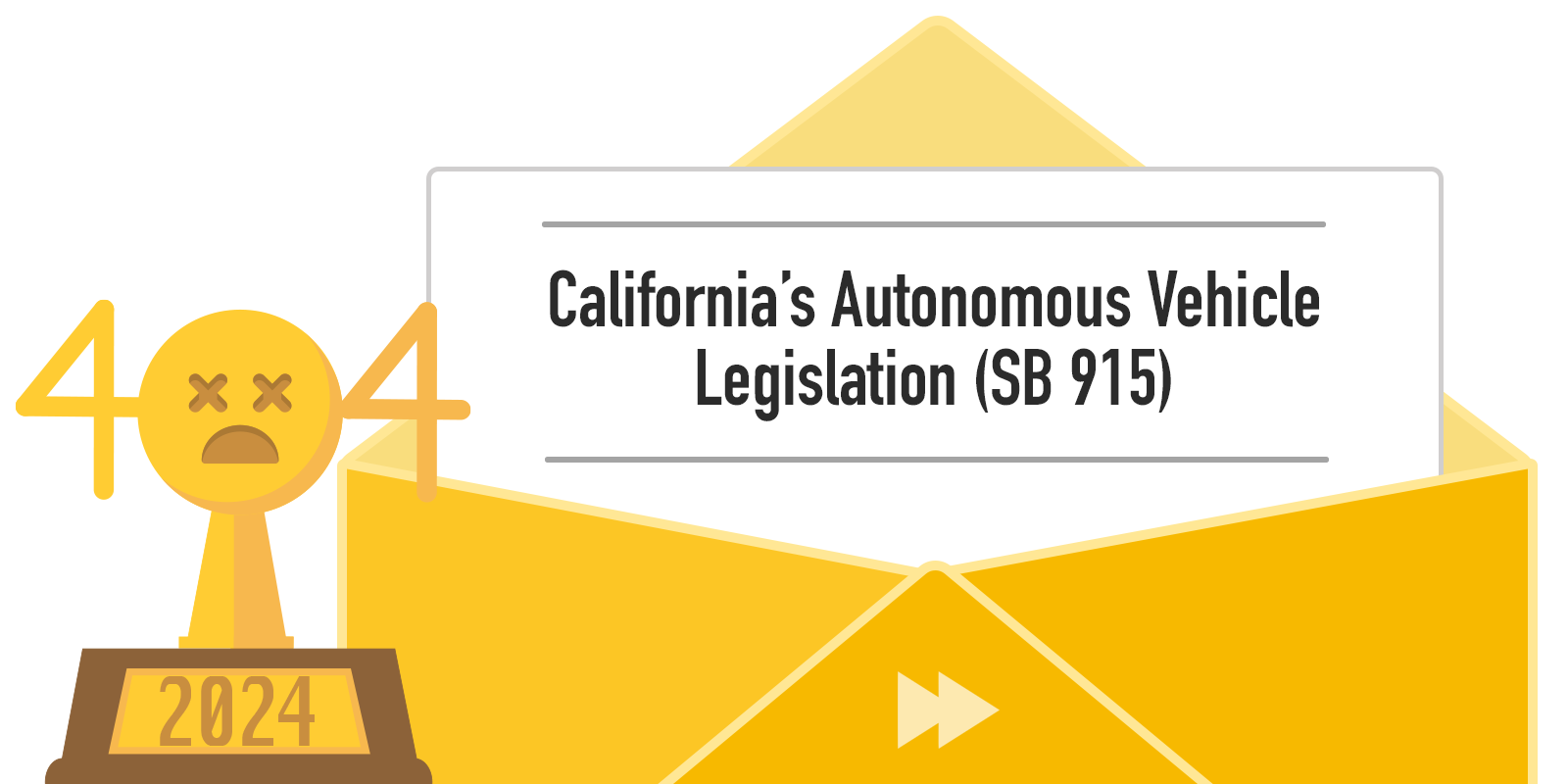
Worst for Vulnerable Communities
This year’s Worst for Vulnerable Communities Award goes to California’s autonomous vehicle (AVs) legislation, Senator Dave Cortese’s SB 915, for overlooking and threatening to harm not one, but many vulnerable communities.
What’s striking about public AV hearings in California is the diverse coalition of residents who have lined up to support autonomous vehicles in their area.
Perhaps the most vocal among pro-AV advocates are members of the disabled community. The National Federation of the Blind argues that blind and low-vision people will be one of the largest beneficiaries of autonomous vehicle deployment. For them, AVs represent a reliable and affordable pathway to enhanced independence, and ultimately, to equality.
Right now, more than 70% of working-age adults in the blind community are not working full-time. AV technology provides a path to the workplace and other opportunities that many blind people previously found difficult or impossible to access. Additionally, members of the blind community have noted that AV companies often accept seeing-eye dogs in robotaxis, while individual ride-hail drivers often do not.
Experts in the field of autonomous vehicles also predict that older generations, particularly people who have some manner of physical impairment, will benefit significantly from AV technology.
Research published by Chamber of Progress also suggests AVs offer many potential solutions to problems confronting minority communities. In his report, Autonomous Vehicles: Leveraging Technology for Diverse Community Benefit, author Brian Woolfolk finds that AVs can be used to address disparities in access to health care, groceries, and job opportunities. Additionally, AVs can improve traffic safety in minority communities that suffer a disproportionate number of traffic deaths and injuries.
But despite all of the benefits that AVs stand to offer vulnerable populations, state lawmakers are currently considering legislation that would effectively take AVs off of California’s streets. Earlier this year, Senator Cortese introduced SB 915, a bill that would allow local cities and municipalities to ban autonomous vehicles (AVs) on local streets, despite research showing that AVs are safer than human drivers.
By allowing every municipality to pursue a Not-In-My-Backyard (NIMBY) approach to AV deployment rules, this bill would amount to an autonomous vehicle ban. Anti-AV regulations in one jurisdiction along a route would mean AVs could no longer travel from point A to point B, disadvantaging the many vulnerable communities that stand to benefit from AV deployment.
Chamber of Progress (progresschamber.org) is a center-left tech industry association promoting technology’s progressive future. We work to ensure that all Americans benefit from technological leaps and that the tech industry operates responsibly and fairly.
Our work is supported by our corporate partners, but our partners do not sit on our board of directors and do not have a vote on or veto over our positions. We do not speak for individual partner companies and remain true to our stated principles even when our partners disagree.